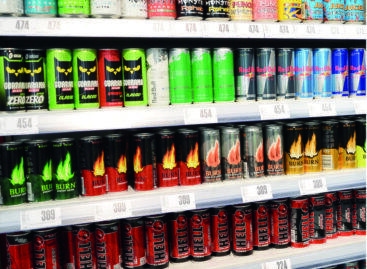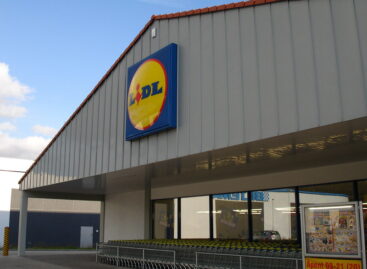The Alert and Cooperation Network summarized the year 2022
In 2022, more than 7,500 notifications were made by Member States through the Alert and Cooperation Network (ACN), but the RASFF system still has the highest number of notifications. Of the almost 4,500 food safety notifications published in 2022, 3,904 were related to food. Most of the problems within the EU were with Polish and Dutch products, while outside the EU with goods of Turkish and Indian origin. 229 cases affected our country.

(Photo: Pixabay)
Based on the recently published 2022 summary, RASFF reports still account for most cases, but at the same time, the number of cases reported in the AAC and FFN systems has increased compared to previous years. Thanks to the cross-border follow-up of cases, a coordinated control plan has been drawn up in several cases, for example to prevent pet trade or honey fraud.
ACN Member Systems:
RASFF: Food and Feed Safety Alert System
AAC: Administrative Assistance and Cooperation
FFN: Food Fraud Network
Last year, a total of 4,361 RASFF cases appeared in the system
The number of notifications related to food continued to be the highest (3,904), a fraction of which was about feed (234) and substances that come into contact with food (219). Most cases, 35% of reports, were initiated as “border rejections”, 27% as “alerts”, 38% as “information”, and less than 1% as “news”. Most of the notifications were initiated on the basis of an official inspection, but the number of notifications made due to corporate self-inspection or consumer complaints was also high. Most of the cases were initiated by Germany, the Netherlands, Belgium and Poland. Within the European Union, problems were most often with Polish and Dutch products. In 2022, the most common food complaints were due to the release of pesticide-contaminated Turkish vegetables and fruits, salmonella-infected Polish poultry and products, and Chinese food contact materials. The report also details that, overall, the most common food hazards last year were unauthorized pesticide residues (chlorpyrifos, ethylene oxide), pathogenic microorganisms (Salmonella 70%, Listeria monocytogenes 16%) and mycotoxins (aflatoxin). . In terms of feeds, problems arose mostly due to pathogens (Salmonella in half of the cases), other microbiological contaminants (high number of Enterobacteriaceae, mainly in dog chews) and compositional problems (grass seed contamination). For food contact materials, releases (PAA, formaldehyde and lead) and non-permitted plastic ingredients (bamboo) were prominent. Most of the 229 RASFF cases affecting our country were related to poultry meat and products made from it, dietary supplements and vegetables and fruits. Of these, 194 were related to food, 17 to feed, and 18 to substances in contact with food, and in 32 cases objections were raised to domestically produced products. The Hungarian authorities reported 19 cases due to risky food. RASFF plays an important role in tracking, withdrawing and recalling problem products. Nébih prioritizes issues that affect the domestic population in the Product Recall database in order to inform the widest possible range of customers about food safety problems as soon as possible.
The number of cases of the AAC assistance network is constantly increasing (2,554 pcs.)
Most inquiries (35.3%) were initiated by Germany, 85.1% of cases were related to food. Through the system, member countries have often requested assistance for vegetables and fruits (pesticides), dietary supplements and other special foods (unauthorized claims), inappropriate composition (CBD), meat and meat products, and fish and fishery products. In 2022, Hungary was affected by 69 AAC notifications (43 food, 5 feed, 20 animals and 1 animal by-product), initiated by our country in 11 cases. The inquiries included a labeling problem, data reconciliation request, documentation deficiency, microbiological objection, illegal pet trade and unauthorized ingredient.
In 2022, around 600 notifications were registered in the FFN system dealing with food fraud
Illegal trade in small animals was prominent on the network (276 cases), in addition to honey counterfeiting, false labeling of fish and fishery products (mainly shrimp and squid) and the addition of water, as well as olive oil (non-extra virgin olive oil labeled as extra virgin) fraud. . In 2022, Hungary was affected by 86 cases raising the suspicion of forgery, of which Hungary was the whistleblower in 10 cases. The cases initiated by the Hungarian authorities were mainly related to pork adulterated with water or other unknown ingredients, the illegal transport/trade of small pets, rabies titer tests, fake horse passports and unauthorized ingredients in performance enhancers.
Nébih
Related news
Bird flu also appeared in Bács-Kiskun county, so the epidemic already affects six counties
In the past few days, the disease was identified in…
Read more >Nébih: Tesco also recalled millet balls from the market
Sorry, this entry is only available in HU.
Read more >Nébih: labeling problems were found with energy drinks
Energy drinks were examined by the National Food Chain Safety…
Read more >Related news
Farmers can get information on the spot, in person
In October-November, Biokontroll Hungária Nonprofit Kft. organizes a cross-country tour…
Read more >Food Packaging Should Have Labels On Front About Health Impact, Says WHO
Packaged food and drinks should have easy-to-read nutritional information on…
Read more >Lidl’s Scan&Go is coming – with payment at self-checkout
After years of testing different systems and processes in Portugal,…
Read more >






